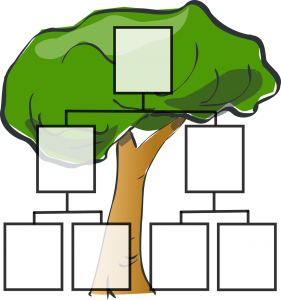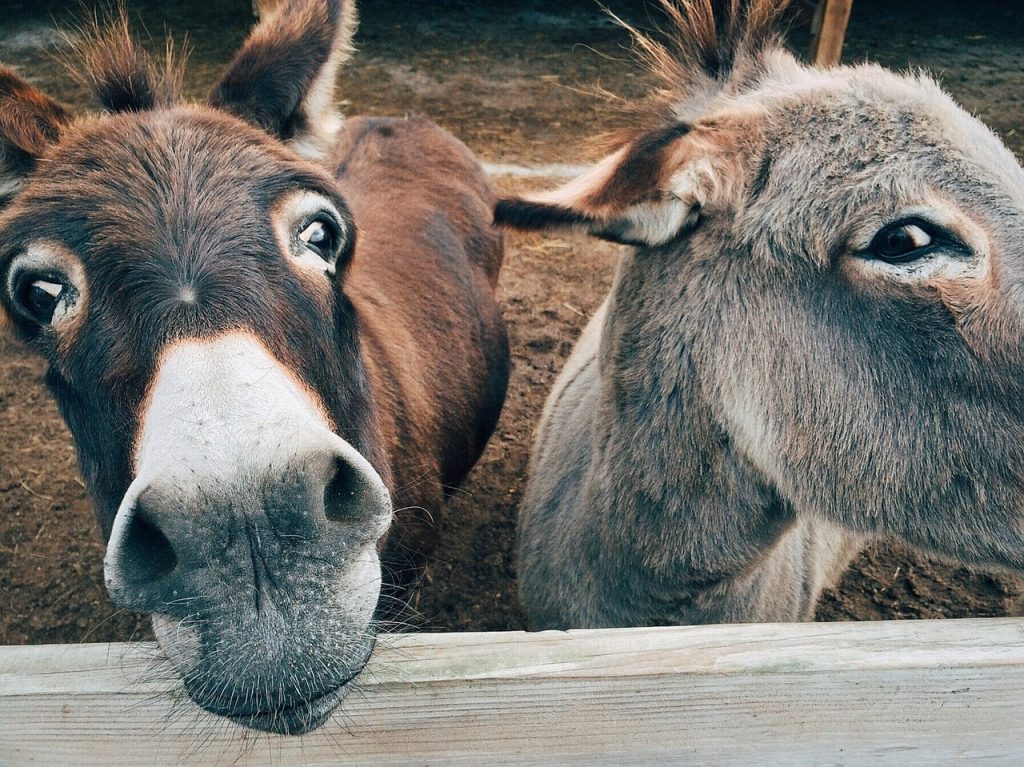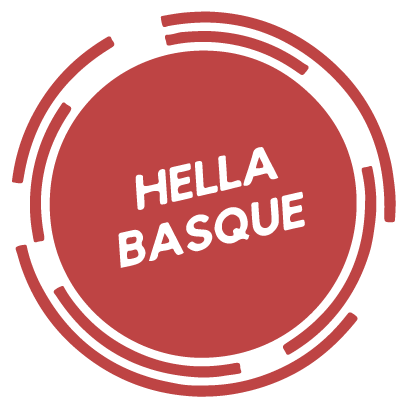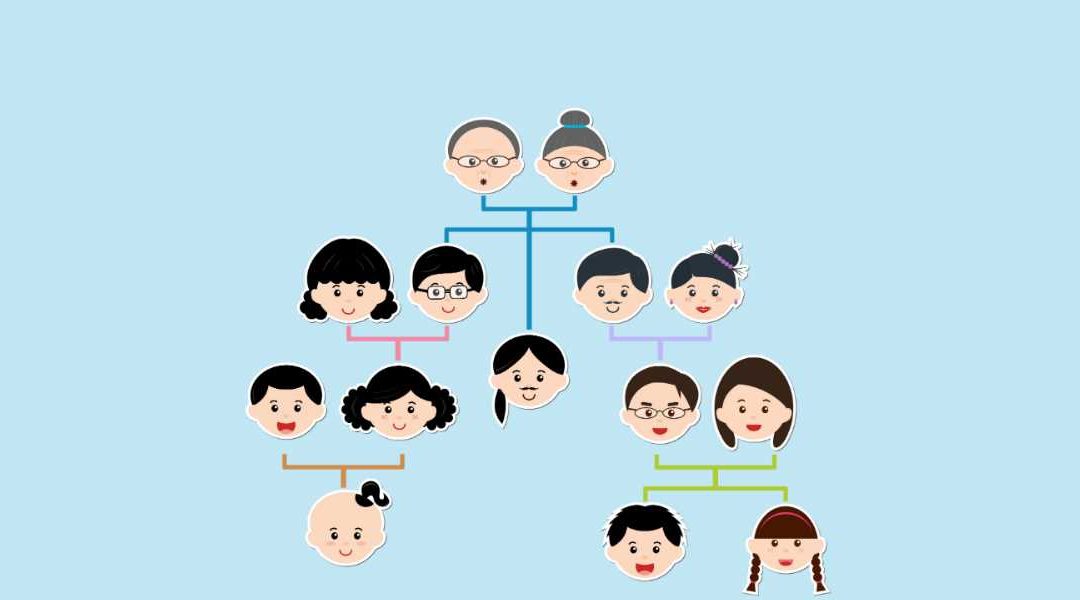The following is a guest post written by Elizabette Guéçamburu. I wanted to give you guys some tips on how to trace your Basque genealogy, but Elizabette knows much more on the topic than I do so I asked her to share her knowledge. Hope you enjoy her post and learn something in the process.
– Anne-Marie
Hi there!
Anne-Marie decided turn over the reins of her most-amazing Hella Basque blog to let me write a guest piece on one of my favorite subjects— family trees and genealogy. I have a special interest in genealogy of the Basque Diaspora— and using the myriad of online databases to assemble family trees.
Yes, I’m the daughter of a Basque immigrant that was once a gardener, so I can’t help myself from planting and watering family trees. It’s in my blood.
While I’m not an expert by any stretch, I do like it a lot and I am Hella Basque’s cousin, so I suppose that also counts for something.
 Plus, it’s important to note that I’m obsessed with those family heritage shows on TV— like “Finding Your Roots” and “Who Do You Think You Are?” I get very emotionally attached the guests on these shows. Even if it’s only their great-great-great grandfather’s neighbor that died at the Battle of Gettysburg, I’m still going to cry a little.
Plus, it’s important to note that I’m obsessed with those family heritage shows on TV— like “Finding Your Roots” and “Who Do You Think You Are?” I get very emotionally attached the guests on these shows. Even if it’s only their great-great-great grandfather’s neighbor that died at the Battle of Gettysburg, I’m still going to cry a little.
I don’t think I’m the only one with these interests, though. You’d have to be living under a pile of rocks to not be aware of this recent explosion in popular interest in family DNA websites and genealogical research.
Maybe that was too strong of a statement. I should apologize to all the people who actually may live under rocks— or have a surname that begins or ends with “mendi.” If that is the case, then maybe it isn’t your fault.
Companies like Ancestry and 23&Me are raking in the cash by getting folks to send their saliva in a little tube for DNA analysis.
For those of us that are Basque, the results may be surprising. Maybe you end up being less genetically Basque than you thought. Or, maybe you find out that your great-grandparents were first cousins. Or, more scandalously, that your great-uncle had an illegitimate child when he was a sheepherder that no one knew about.
If you think stuff like this didn’t happen, then I’m sorry to burst your bubble. Don’t forget, those were the years before Snapchat and Fantasy Football. Sheepherders had to do something more than just stare at tumbleweeds as they rolled by.
But, on the other hand, your DNA results may not be so surprising.
For example, prior to getting my results, I already suspected that I was related to a good majority of the Basque Diaspora. This was based on my theory that all Basques are related to each other if you go back far enough.
However, if your great-grandparents were first cousins, too, maybe you don’t have to go back that far, after all. Don’t forget, these Basque villages were small. And the main mode of transportation used to be a donkey.
So, geographically-speaking, your dating pool was limited.
Like, the radius of how far your donkey would venture from home before it decided to kick you in the face.

Anyway, my DNA results confirmed my theory. I was related to a crazy-number of people. In fact, if you’re Basque and you’re reading this, I’m probably related to you, too. While, on one hand, this may be weird, it’s also really good news if I ever need a kidney.
Okay, let’s say you throw caution to the wind and decide to take a DNA test. Then what? You get a bunch of results and matches that you don’t understand.
Well, a good thing to do next is build a family tree so you can begin to place these matches in context.
If you are a member of the Basque Diaspora, you might not have any clue how to go about this, though.
If that’s the case, here are my tips:
How to Research Your Basque Family Tree
1. Talk to the Aitatxis and the Amumas in your family.
Talk to your Tios and Tantas. Get as many details as you can about where your ancestors came from. Be specific. Ask for village names. Sibling names. The names of the “etxeas” they came from. All these details are important.
2. Work backward in time.
If your family has been in the United States for a few generations, look for online records to track your ancestors back in time to the point when they first entered the country. Ancestry.com has an amazing database of Census, birth, marriage, and immigration records. These documents could contain details that are crucial to your search.
3. Try accessing the online databases from the Basque Country, if you’ve found your direct immigrant ancestors and their location of origin.
While these records are in Spanish or French, depending upon which side of the border you are on, don’t be intimidated. My language fluency is limited, but I was still able to get some useful information from the following sources. There are certainly more resources I’m not including (or aware of), so if you know of more, please write in and we can update this list.
Online Genealogy Databases of the Basque Country
For the French Basque Country:
• e-Archives AD64:des registres paroissiaux et d’état civil
For the Spanish Basque Country (excluding Nafarroa):
• Archivos de Euskadi, dokuklik
If you decide to do some digging of your own, I wish you luck. Maybe we’ll end up being cousins, too. And, if I do end up needing your kidney, remember, you can’t charge me for it. That’s illegal.
Happy Hunting!
– Elizabette Guéçamburu
About the Author:
Elizabette Guéçamburu is a writer, newspaper columnist and disability advocate with an addiction to books, politics, and all things that smell like pumpkin pie. Based in central California, she graduated from Santa Clara University and endured a brief, and horribly boring, stint in law school. She blogs at: www.elizabetteunplugged.com
EDIT 3/14/19: I received an email from reader Bob Hernandez who had his own Basque genealogy resources to add to this list. Here are Bob’s tips:
“These have been invaluable to me, and I have been able to trace ancestors, in one case, to the mid-1400’s. But it’s taken me years as the technology catches up. Since I’m focused on Bizkaia, these are mostly in Spanish. It helps to use Chrome’s translator.
Catálogo del Archivo Histórico de la Diputación Foral de Bizkaia. An online database of archives based in Bilbao. Includes genealogies of those who needed to prove the Basque Universal Nobility (hijos dalgo; nobleza y limpieza de sangre – that last phrase translated to something that is sinister sounding: pureblood). Sometimes you can get digitized copies of historical documents for those who cannot make it to Bilbao. http://www.bizkaia.eus/home2/Temas/DetalleTema.asp?Tem_Codigo=6440&idioma=CA&dpto_biz=4&codpath_biz=4%7C295%7C6440
You can supplement the above with Spain’s historical archives…I’ve found a few items here, including digitized copies: http://pares.culturaydeporte.gob.es/inicio.html
Archivo Histórico Eclesiástico de Bizkaia – an online database the ecclesiastical records of Bizkaia, including Villaverde de Trucios (an enclave of Santander surrounded by Bizkaia). Similar to Archivos de Euskadi, dokuklik: http://internet.aheb-beha.org/paginas/portada/n_portada.php
A ton of family lineages compiled by Antonio Castejón: http://www.euskalnet.net/laviana/
Several insightful lineages and historical transcripts can also be found here, but the emphasis is on the towns of Zalla and Guenes in the area of Las Encartaciones (west of Bilbao): https://lopegarciadesalazar.wordpress.com/”
Thanks for contributing, Bob! – Anne-Marie
CONTINUE READING:


I’ve only just found out via ancestry that I have 1% basque in me. I’m african american and would like to explore this further. Did Basque come over and own slaves? Or work on plantations? Thanks for any help….
Hello, Charlene!
Thanks for your message. The Basques have historically been an oppressed minority within Spain and France. Therefore, given the economic & societal barriers that existed for many Basques, it was not unusual for them to venture beyond the Basque Country for employment or to make a new life. It’s why there have been multiple waves of emigration from the Basque region for hundreds of years— to various locations around the world. Because of the prejudices that Basques faced, sometimes, upon leaving their homeland, Basques adopted more of a “Spanish” or “French” persona in their new life— shedding their Basque heritage in order to assimilate.
Many Basques immigrated to Louisiana, Mexico, Puerto Rico, Cuba, and to Latin America. Do you know if your African American ancestors lived in Louisiana at some point? Or, do you have any Hispanic connections? Hispanic DNA? French DNA? Your Basque ancestry could be linked via one of these avenues, would be my strongest guess.
I do know that there were some French/Cajuns (with Basque ancestry) that owned slaves in Louisiana. I have heard that fact before. But, there were also some Basques that just worked as laborers, too. So, both options are a possibility.
I’m really glad you reached-out here. 🙂 So good to hear from you.
Hi,
Are there any sites that specifically trace Basque migration to specific areas of Mexico?
Thank you,
Terry Montalvo